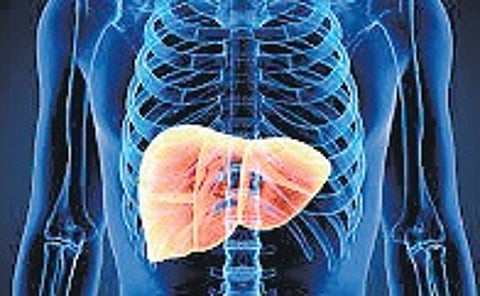

BENGALURU: Liver cancer, ranked in the Top 10 among the most common cancers in India, has a poor prognosis. About 60% of patients succumb within a year, and 78% of them do not survive beyond five years. While early detection can significantly improve the chances of survival and reduce the impact of the disease, preventing the majority of liver cancers can be achieved through vaccination against Hepatitis B, along with the treatment of Hepatitis C, diabetes, and obesity, experts highlighted on World Liver Day, which is observed on April 19.
Explaining the trends in liver cancer over the years in India, Dr Radheshyam Naik, Consultant Medical Oncologist, Hematologist and Bone Marrow Transplant Physician with Sammprada Hospital, said that liver cancer incidence linked to infections such as Hepatitis B and C is on the decline, while cases attributed to lifestyle factors like obesity, smoking, and alcohol consumption are rising. “Moreover, an unhealthy diet contributing to diabetes and metabolic syndrome has emerged as a significant cause of liver cancer,” he said.
Dr Sonal Asthana, Lead Consultant - HPB and Liver Transplant Surgery, Aster CMI Hospital, said that diagnosing liver cancer in its early stages can pose challenges as symptoms may be vague or absent. However, as the disease progresses, individuals may begin to experience various indicators, the doctor added.
Unexplained weight loss, fatigue, and weakness are common, alongside abdominal swelling or bloating caused by fluid buildup or an enlarged liver. Loss of appetite or feeling full quickly after eating may also occur. Other signs include jaundice, characterised by yellowing of the skin and eyes, as well as pale stools and dark urine, she added. Early detection through vigilance for these symptoms, coupled with routine screenings for those at risk, is crucial for improving outcomes in liver cancer treatment, Dr Sonal elaborated.